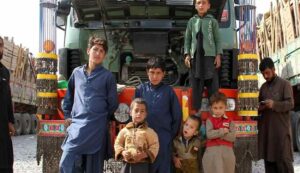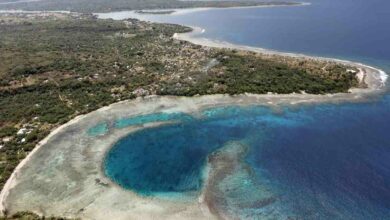Taliban officials urge Pakistan to work out a joint mechanism for orderly repatriation of refugees
Islamabad: Taliban leaders asked Pakistan on Sunday to set up a cooperative system for the refugees’ gradual return. According to Dawn, Taliban leaders also said that deporting people by force is not beneficial for either Afghanistan or Pakistan.

Pakistan’s Interior Ministry said in a statement on March 7 that “all illegal foreigners and ACC holders are advised to leave the country voluntarily before 31 March 2025; thereafter, deportation will commence wef 1 April 2025.”
Mufti Abdul Mutalib Haqqani, a spokesman for the Taliban-led Ministry of Refugees and Repatriation, said that repatriating the refugees is Afghanistan’s official policy, according to Dawn. To ensure that refugees are repatriated gradually and with “honor,” it should be carried out via a cooperative process with Pakistan.
The spokesman told Taliban’s Hurriyat Radio, “But if Pakistan unilaterally sends refugees, we are fully prepared to receive them.” He said, “We have held meetings with Pakistani officials on the issue and are still in contact with them.”
Afghanistan’s primary demand, according to Haqqani, is that Afghan refugees not be forcefully repatriated since doing so is against Islamic principles, international law, and good neighborly standards.
“Their forcible deportation is also not in the best interests of Afghanistan and Pakistan,” he said. In order for Afghan refugees to be treated with respect, we have consistently called for a coordinated process for their repatriation and for fewer of them to return.
A spokeswoman claims that Afghans are being forcibly returned, and Iran has indicated that it is eager to work with others to create a cooperative system via an agreement.
Haqqani said that a panel was established to help and safeguard refugees. They would get land in different regions of Afghanistan, and skilled refugees would be offered employment opportunities.
He said, “Those who want to invest, no tax will be imposed for five years and no tax on whatever they brought to the country.”
Afghan authorities, however, have reported that camps in Torkham welcome and aid Pakistani migrants.
Siddiqullah Qureshi, chief of the Nangarhar province communications department, told Afghan official news outlet Bakhtar that 325 migrants came via Torkham on Friday.
He said, “The returnees include 249 members of 62 families and 31 other individuals were deported on April 13.” He said that repatriation via Torkham has increased lately and that amenities such as registration are being provided to returnees.
According to Dawn, which cited Bakhtar, a high-ranking provincial delegation headed by Nangarhar Deputy Governor Maulvi Azizullah Mustafa traveled to the Torkham border to closely monitor the second wave of Afghan refugees returning from Pakistan and to enhance coordination and actions to address their initial needs and issues.
On the Pakistani side, a camp established to aid with the repatriation of holders of Afghan Citizenship Cards (ACC) is currently operating. According to the report, workers at the Landi Kotal camp are now preparing refugees for deportation.
According to Khyber district authorities on Sunday, 850 Afghans’ cases were processed for repatriation at Torkham and Landi Kotal camp. On Saturday, up to 777 Afghans were deported via Torkham.
11,272 Afghans have been returned since April 1, according to a top official in the Khyber area who spoke to Dawn.
According to a prior notification, Pakistan began repatriation and deportation on November 1 and has not complied with the demands of Taliban commanders.
The Illegal Foreigners Repatriation Plan (IFRP) went into effect on November 1, 2023, according to a statement from Pakistan’s interior ministry. Since the IFRP began, almost 700,000 illegal Afghans have already departed Pakistan.
According to a statement, “In continuation of the government’s decision to repatriate all illegal foreigners, national leadership has now decided to also repatriate ACC holders.”
Pakistan is home to 800,000 Afghan nationals, 1.52 million registered Afghan refugees and asylum seekers, and additional individuals residing there without official recognition, according to Philippa Candler, the United Nations High Commissioner for Refugees’ (UNHCR) representative for Pakistan.





